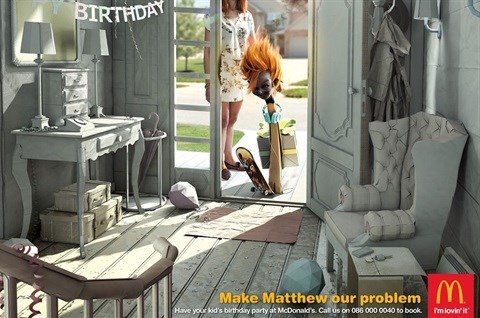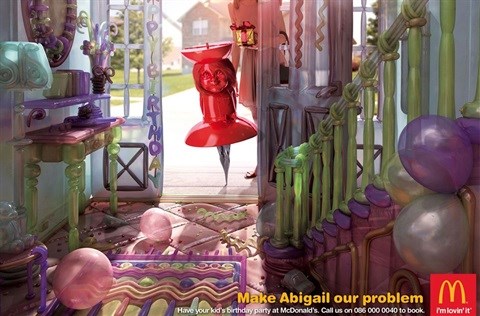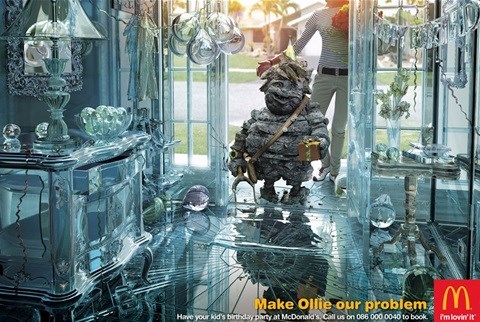DDB seems to have the advertising formula right across Africa - its agencies were nominated three times in the African Cristal Awards' agency of the year category alone. What's behind their continent-wide success?
Last weekend's African Cristal Awards garnered attention across the continent. While South Africa's King James Group was crowned Agency of Year, DDB's name came up three times in the 'agency of the year' category alone, with the ZA; Lagos, Nigeria; and TNA/DDB, Egypt agencies as nominees.
In light of this continent-wide advertising recognition, I tracked down Kenneth Garvie, Head of Digital at DDB South Africa to find out what makes the agencies tick.
Garvie says it was a welcome surprise that three DDB agencies were considered for Agency of the Year. While they're a tight network and often collaborate with each other with certain projects, the nominations were purely incidental and there wasn't a combined strategy in this regard.
In terms of differences in the SA advertising standard compared to the rest of the continent, Garvie agrees with Alistair King of King James Group, who commented: "no doubt that South African advertising is considerably more sophisticated, and certainly better produced, than most African countries, although I'm not convinced that our ideas are any better."

"Matthew and the paper house". An example of DDB's Cristal winning work for McDonald's
Garvie elaborates that compared to most countries on the continent, South African advertising is more advanced and sophisticated than many of our African counterparts when it comes to the execution of the ideas. But that doesn't mean South Africa's ideas are necessarily better. That said, in DDB's experience there are certain 'styles' of advertising that definitely deliver and work better in other African countries than they do in South Africa. And this in turn is the true sign of advertising success, as the end point of advertising is ultimately to deliver business results.
Moving on to the difference in mobile across Africa and South Africa, media often indicates that South Africa's pushing smartphone penetration while much of Africa is still stuck with feature phones... how that affects social media in particular.
Garvie adds that while this is true, advertising agencies shouldn't forget the following...
Three key 'features' on the feature phone/smart phone mobile debate
- Even in South Africa, the vast majority of the population still use feature phones, although penetration is growing rapidly.
- While smartphones might allow you to develop more advanced campaigns, this doesn't necessarily mean that they'll be more effective or deliver a better ROI.
- Smartphones open up opportunities for you to do more exciting and interesting things with a campaign, but they're no substitute for a great idea. With some clever thinking, you can still deliver great, effective mobile campaigns on feature phones, they just might not look as pretty.
Drilling down into the data on data

"Abigail and the inflatable house". An example of DDB's Cristal winning work for McDonald's
Comparatively speaking, data is still expensive in Africa. Garvie feels this is potentially the largest barrier for people to engage on social media platforms as much as is the trend in the Western world.
But recent reports show that social media usage is starting to grow quite quickly in Africa, with the figures more impressive than what you may think.
For example, Garvie mentions a report released in Jan 2014 that put Facebook penetration in Nigeria at 11.2 million users, which is 6% of the total population.
The same report puts South Africa's Facebook penetration at 9.8 million users, which accounts for roughly 20% of the population. So while South Africa might have more than triple the penetration figure than Nigeria in terms of percentage, Nigeria's penetration is actually larger than South Africa's in absolute numbers and growing - quickly.
Reminder: there are more than a handful of social media platforms

"Ollie and the glass house". An example of DDB's Cristal winning work for McDonald's
Garvie says not to forget that Facebook and Twitter are not the only two social media platforms around. While they're the undeniable global leaders, within Africa there are other platforms that people are using, which detracts from the Facebook and Twitter usage. For example, 2go is a very popular social media platform in Nigeria, which, until fairly recently, was actually the most popular platform in the country.
With Facebook now in the top position in the country, boasting a usage figure of 83%, 2go hold what Garvie dubs "a very close second position at 77% usage." This puts it above the South African staples of Twitter, YouTube, Google+ and LinkedIn.
The point is, if you're looking to engage with African consumers on social media, you need to ensure you chose the right platforms as Facebook and Twitter are only part of the solution.
Click here for all the African Cristal Festival winners, here to view the DDB Skittles campaign and here for a reminder of why you shouldn't bombard your audience with the same message on multiple platforms.
View more work below:









































